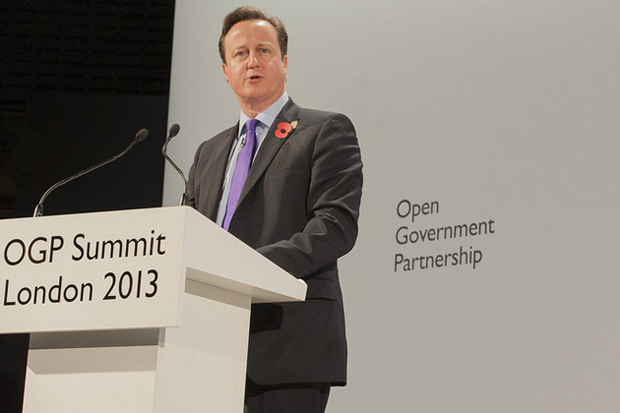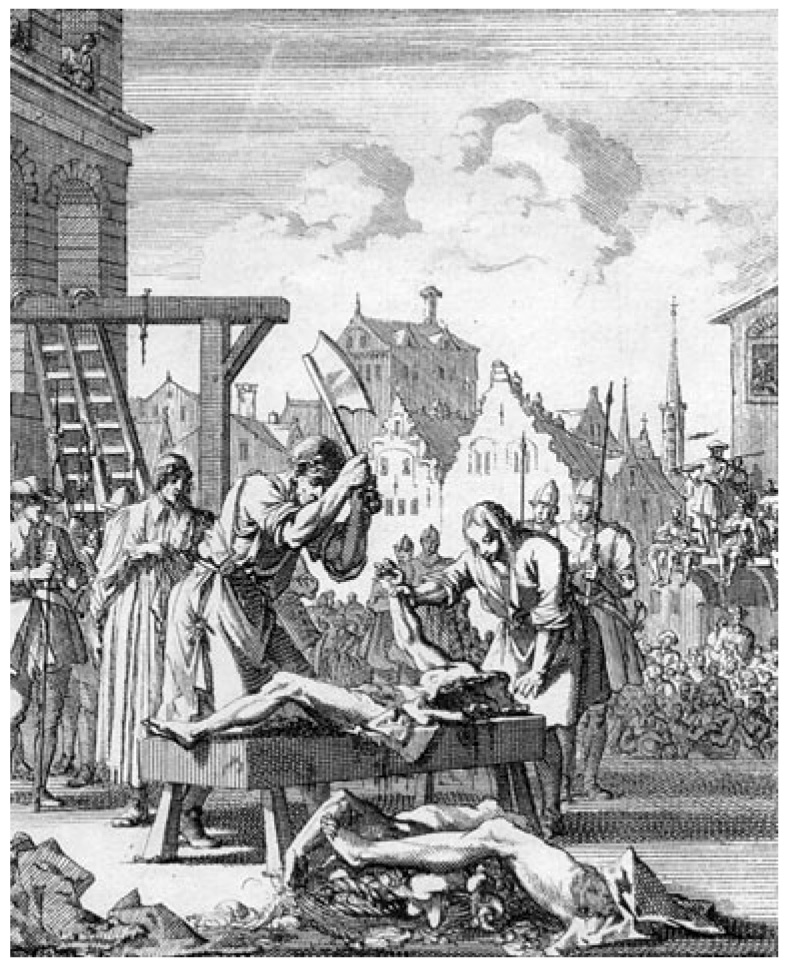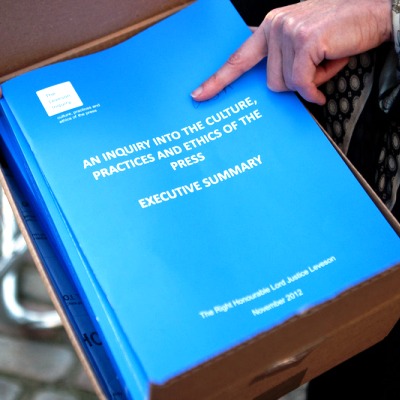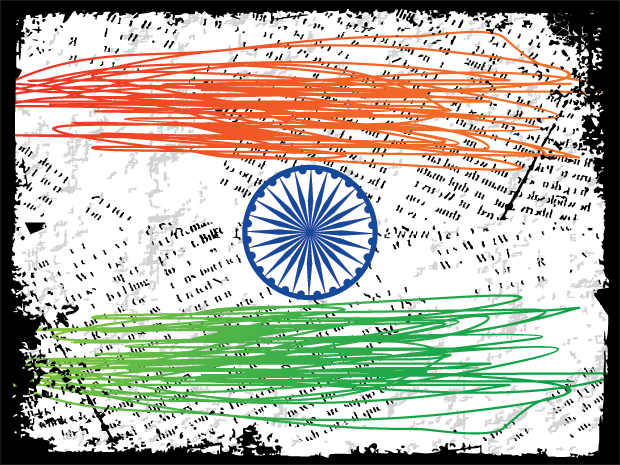1 Nov 2013 | News, United Kingdom

State control of the press is hot topic. On Wednesday, Queen Elizabeth signed off a Royal Charter which gives politicians a hand in newspaper regulation. This come after David Cameron criticised the Guardian’s reporting on mass surveillance, saying “If they don’t demonstrate some social responsibility it will be very difficult for government to stand back and not to act”.
But what does state control of the press really look like? Here are 10 countries where the government keeps a tight grip on newspapers.
Bahrain
Press freedom ranking: 165
The tiny gulf kingdom in 2002 passed a very restrictive press law. While it was scaled back somewhat in 2008, it still stipulates that journalists can be imprisoned up to five years for criticising the king or Islam, calling for a change of government and undermining state security. Journalists can be fined heavily for publishing and circulating unlicensed publications, among other things. Newspapers can also be suspended and have their licenses revoked if its ‘policies contravene the national interest.’
Belarus
Press freedom ranking: 157
In 2009 the country known as Europe’s last dictatorship passed the Law on Mass Media, which placed online media under state regulation. It demanded registration of all online media, as well as re-registration of existing outlets. The state has the power to suspend and close both non-registered and registered media, and media with a foreign capital share of more than a third can’t get a registration at all. Foreign publications require special permits to be distributed, and foreign correspondents need official accreditation.
China
Press freedom ranking: 173
The country has a General Administration of Press, Publication, Radio, Film and Television and an army official censors dedicated to keeping the media in check. Through vaguely worded regulation, they ensure that the media promotes and toes the party line and stays clear of controversial topics like Tibet. A number of journalists have also been imprisoned under legislation on “revealing state secrets” and “inciting subversion.”
Ecuador
Press freedom ranking: 119
In 2011 President Rafael Correa won a national referendum to, among other things, create a “government controlled media oversight body”. In July this year a law was passed giving the state editorial control and the power to impose sanctions on media, in order to stop the press “smearing people’s names”. It also restricted the number of licences will be given to private media to a third.
Eritrea
Press freedom ranking: 179
All media in the country is state owned, as President Isaias Afwerki has said independent media is incompatible with Eritrean culture. Reporting that challenge the authorities are strictly prohibited. Despite this, the 1996 Press Proclamation Law is still in place. It stipulates that all journalists and newspapers be licensed and subject to pre-publication approval.
Hungary
Press freedom ranking: 56
Hungary’s restrictive press legislation came into force in 2011. The country’s media outlets are forced to register with the National Media and Infocommunications Authority, which has the power to revoke publication licences. The Media Council, appointed by a parliament dominated by the ruling Fidesz party, can also close media outlets and impose heavy fines.
Saudi Arabia
Press freedom ranking: 163
Britain isn’t the only country to tighten control of the press through royal means. In 2011 King Abdullah of Saudi Arabia amended the media law by royal decree. Any reports deemed to contradict Sharia Law, criticise the government, the grand mufti or the Council of Senior Religious Scholars, or threaten state security, public order or national interest, are banned. Publishing this could lead to fines and closures.
Uzbekistan
Press freedom ranking: 164
The Law on Mass Media demands any outlet has to receive a registration certificate before being allowed to publish. The media is banned from “forcible changing of the existing constitutional order”, and journalists can be punished for “interference in internal affairs” and “insulting the dignity of citizens”. Foreign journalists have to be accredited with the Ministry of Foreign Affairs.
Vietnam
Press freedom ranking: 172
The 1999 Law on Media bans journalists from “inciting the people to rebel against the State of the Socialist Republic of Vietnam and damage the unification of the people”. A 2006 decree also put in place fines for journalists that deny “revolutionary achievements” and spread “harmful” information. Journalists can also be forced to pay damages to those “harmed by press articles”, regardless of whether the article in question is accurate or not.
Zimbabwe
Press freedom ranking: 133
The country’s Access to Information and Protection of Privacy Act gives the government direct regulatory power over the press through the Media and Information Council. All media outlets and journalists have to register with an obtain accreditation from the MIC. The country also has a number of privacy and security laws that double up as press regulation, The Official Secrets Act and the Public Order and Security Act.
This article was originally posted on 1 Nov 2013 at indexoncensorship.org.
31 Oct 2013 | News, United Kingdom

As the royal charter on press regulation was approved by Queen Elizabeth II, Index on Censorship takes a look at crime and punishment the last time the state controlled the press.
The Licensing Order 1643 censored the press by introducing pre-publication licensing, registration of all printing materials with the names of author, printer and publisher, the seizing and destruction of any books that may be deemed offensive to the government, and the arrests and imprisonments of any offensive writers, printers and publishers. Parliament failed to renew the Act in 1695 but what other laws were imposed on Britain’s at the beginning of the 17th century?
- Capital punishments for crimes including treason, piracy, forgery and arson in the Royal Dockyards still existed. What form of capital punishment one received depended on their social background.
- Beheading, which was not abolished until 1747, was normally reserved for those born into nobility.
- Being hung, drawn and quartered was the other more popular option; convicts were driven to the place of execution, hanged, and then whilst still alive (and sometimes conscious) had their stomachs cut open and their entrails drawn out.
- Women found guilty of treason or the murder of their husbands faced the prospect of being burned alive. But don’t worry; the executioner would often strangle the culprit before lighting the match.
- The execution of witches was still legal in England at the time. Unlike in other parts of Europe, those suspected of witchcraft in England were hanged for their crimes as opposed to burnt at the stake. The last execution of a witch was in in 1682, when Temperance Lloyd, Mary Trembles, and Susanna Edwards were executed at Exeter.
- Hollywood movies often depict criminals easily getting away with murder- it was even easier in 1695. Royal Pardons were still dished out for even the most heinous of crimes if the King knew the defendant or felt sympathy towards them. Women had it even easier, often ‘pleading the belly’ that they were with child, omitting them from any punishment until they gave birth. By then their sentencing was often forgotten about.
- Those who had been pardoned were then branded with a letter representing their crime on their thumb preventing them from being let off the hook more than once. For a short time this brand was scorched onto the face but as ex-convicts found they were increasingly unemployable the brand was moved back to the thumb.
- Those who committed petty crimes, including theft and felon, were sentenced depending on their social status, age, sex, and personality. Punishments ranged from imprisonment and committal to a house of correction, where hard labour was often inflicted, to public whipping and time spent in the stocks.
- As the use of the death penalty began to dwindle out at the end of the 17th century a new form of punishment was needed- many criminals soon found themselves transported to Australia.
- Suicide was still illegal in England at the time. Those found to have committed ‘self-murder’ were denied a Christian burial.
- Other laws of the time included a £2 fine for swearing (a lot of money in those times), the requirement of all Englishmen aged 17-60 to keep a longbow for regular archery practice and that all belonged to the Church of England.
This article was originally posted on 31 Oct 2013 at indexoncensorship.org.
24 Oct 2013 | Media Freedom, News
This is a crosspost from WAN/IFRA
COMMONWEALTH PRESS UNION MEDIA TRUST, London, UK
FIPP – THE WORLDWIDE MAGAZINE MEDIA ASSOCIATION, London, UK
INTER AMERICAN PRESS ASSOCIATION, Miami, USA
INTERNATIONAL ASSOCIATION OF BROADCASTING, Montevideo, Uruguay
INTERNATIONAL PRESS INSTITUTE, Vienna, Austria
WORLD ASSOCIATION OF NEWSPAPERS & NEWS PUBLISHERS, WAN-IFRA, Paris, France; Darmstadt, Germany
WORLD PRESS FREEDOM COMMITTEE, Paris, France; Washington DC, USA.
Your Majesty
For more than three centuries since Britain abolished the last set of statutory controls on the press in 1695, the United Kingdom has been a consistent champion of the most crucial freedom of all – freedom of expression – and a beacon of liberty across the world.
Freedom of expression was central to the European Convention of Human Rights which Britain helped draft. It is part of the Universal Declaration of Human Rights to which the UK is a signatory. It is a core belief in the Commonwealth Charter which Britain inspired. Free speech and freedom of expression have throughout the 20th and 21st centuries therefore been at the core of Britain’s international commitments, of its leadership of the free world, and of its international reputation as a liberal democracy.
Yet all that is now in danger. No one should be in any doubt that the proposed Royal Charter which politicians are forcing Your Majesty to sign is, despite the camouflage, in reality a set of repressive statutory controls being imposed on the press against its will. That should not be the function of a Royal Charter.
Some will argue that it is just intended to establish a body to oversee an independent regulator. But by laying down rules about how that regulator must work and how the ethical Codes that bind the press should be written this toxic Charter brings Parliament for the first time ever to the heart of the newsroom. It breaches the fundamental principle that politicians must never get involved in editorial content regulation. And it lays the foundation for fully fledged statutory controls.
That will have a chilling impact on journalism throughout the United Kingdom – from the biggest national newspapers to the smallest local and regional papers and magazines in the four nations of your country – weakening democracy as a result.
But far more important to us is the impact of your actions across the globe. The world still follows Britain in so many areas. If the UK moves to control the press through the force of law then it will have a terrifying knock-on effect throughout the Commonwealth and much of the developing world where Britain has a key leadership role. The fact that this is being done by Royal Charter – an instrument traditionally used to grant rights, not to curtail them – will make that infinitely worse because of the respect in which You personally, and the Crown institutionally, are held throughout the world.
The actions of Britain’s Parliament will be used as an excuse by those who want to muzzle the press in their own country and stifle the free flow of information – and there are many governments who would love to do so. And it is your name, Your Majesty, that will regrettably be taken in vain. “If it is good enough for the Queen, it is good enough for us.”
Already we have seen the chill winds of what is happening in the UK in South Africa, Botswana and Sri Lanka. Many more will follow.
This issue is of huge importance for freedom of expression in the UK. It is important for Britain’s standing in the world. But above all it is important for the impact on countries not nearly so lucky as the many of us in Europe who until now have enjoyed fundamental freedoms.
At the Commonwealth Heads of Government meeting next month in Sri Lanka, the British Government – with The Prince of Wales as your representative – should be campaigning for the protection and expansion of free expression throughout the Commonwealth, not least in countries like Rwanda, Singapore and Sri Lanka itself, which persistently lag at the bottom of world press freedom indices alongside Syria and North Korea. Further, the British Government, which decriminalised defamation in 2009, should also take strong steps encouraging Commonwealth countries to repeal criminal defamation laws. But Britain will be in no position to do that if you have signed a Royal Charter which will be seized on by enemies of free speech everywhere eager to impose similar controls. Britain will have abrogated its rights and the world will be worse off for that.
We urge you, Ma’am, as the final guarantor of freedom of expression across the UK and your Commonwealth, not to sign this Charter.
Signed by the following members of the Coordinating Committee of Press Freedom Organisations:
COMMONWEALTH PRESS UNION MEDIA TRUST, London, UK;
FIPP – THE WORLDWIDE MAGAZINE MEDIA ASSOCIATION, London, UK;
INTER AMERICAN PRESS ASSOCIATION, Miami, USA;
INTERNATIONAL ASSOCIATION OF BROADCASTING, Montevideo,
Uruguay;
INTERNATIONAL PRESS INSTITUTE, Vienna, Austria;
WORLD ASSOCIATION OF NEWSPAPERS & NEWS PUBLISHERS,WAN-IFRA, Paris, France, Darmstadt, Germany;
WORLD PRESS FREEDOM COMMITTEE, Paris, France, Washington DC, USA.
10 Sep 2013 | India, Politics and Society, Religion and Culture
 In an unprecedented move, the heads of India’s three major media regulators, all retired judges, sat on a single platform with the current Minister for Information and Broadcasting, Manish Tewari, to discuss the way forward for media regulation.
In an unprecedented move, the heads of India’s three major media regulators, all retired judges, sat on a single platform with the current Minister for Information and Broadcasting, Manish Tewari, to discuss the way forward for media regulation.
The Indian media industry, including both information and general entertainment channels, are often in the news for violations of industry ethics codes. Entertainment channels often air inappropriate content and exceed the number of advertising minutes per hour as prescribed by the Telecom Regulatory Authority of India. News channels, too, have been in the limelight because of the paid news phenomenon, which has been the subject of a Parliament report, and their complicated ownership structures that belie a deep connection between business and politicians.
While around 100 of India’s 800 channels broadcast news, only about half of them formally come under any industry association, although they account for 80% of viewership. The larger industry associations are the News Broadcasting Standards Association (NBSA), the Broadcast Contents Complaints Council (BCCC) and the Press Council of India (PCI).
The panel explored whether an independent statutory body is needed to act as regulator – opened up an interesting discussion. Justice Markandey Katju, Chairman, PCI, Justice A.P. Shah, Chairperson, BCCC, Justice R.V. Raveendran, Chairperson, NBSA, shared the stage with Tewari.
The Indian media industry itself has been unequivocal in stating that it is capable of self regulation. However, the heads of the currently regulatory bodies pointed out that despite the current system of self regulation, many channels simply opt out of voluntary membership of these associations if they do not want to follows its rules or pay fines. It is clear that regulators in India are of the view that even if self-regulation is the way forward, it cannot be voluntary. The lack of professionalism in journalism, ‘trials by media’, and the urban slant of national news channels have led to skewed and uneven growth in the Indian media industry.
The panel was divided by questions over the exact form self-regulation should take in the future. While some dominant voices such as Katju’s believed that media persons are best suited to regulate their peers, others felt this structure only hurts the regulators’ credibility. However, Katju also suggested that there be only one body to regulate all media, unlike the current system. Others backed a statutory self-regulating body to replace the current system.
A few essential points emerged as consensus – the regulator should have a real power to punish and fine; adopt global standards; enforce universal membership.
There was also a call to the industry to not hide behind a faulty ratings system as an excuse to broadcast lower quality content. In fact, the Tewari made an appeal for the industry to no longer stand in the way of reforming India’s system of television ratings system, which the government believes will help create an alternative business model. Tewari also added that while the regulatory bodies are currently concentrating on television programming, however, a new or reformed regulatory body needs to keep pace with technological changes, especially the internet. The ministry has publicly said it would prefer a model of self-regulation rather than have the government step in.
In the end, there was a call for editors and owners of media houses not to confuse their duties to the citizens and shareholders.
What is clear is that Indian media, by its own admission, has entered a phase where even much of the industry has come to realize that some amount of universal regulation is needed to weed out much of the malpractice in the industry. However, in reforming business practices, including ownership (such as cross media ownership, as reported by Index) or curbing paid news, it is essential that freedom of expression is not trampled.
A new line of thought has been slowly emerging in India: that the media freedoms allowed by constitutional guarantee extends to the content of the news and entertainment programming, but not to the illegal and monopolistic manner in which the media industry itself operates. It is inevitable that with the proliferation of the internet and complete digitisation of cable services, regulatory bodies will have a bigger job on their hands.
Some commentators feel this means an independent statutory body to regulate the media – like the very effective Election Commission of India – is needed, and it is expected that a private member’s bill will be introduced in Parliament in the next session.
This article was originally published on 10 Sept 2013 at indexoncensorship.org




 In an unprecedented move, the heads of India’s three major media regulators, all retired judges, sat on a single platform with the current Minister for Information and Broadcasting, Manish Tewari, to discuss the way forward for media regulation.
In an unprecedented move, the heads of India’s three major media regulators, all retired judges, sat on a single platform with the current Minister for Information and Broadcasting, Manish Tewari, to discuss the way forward for media regulation.